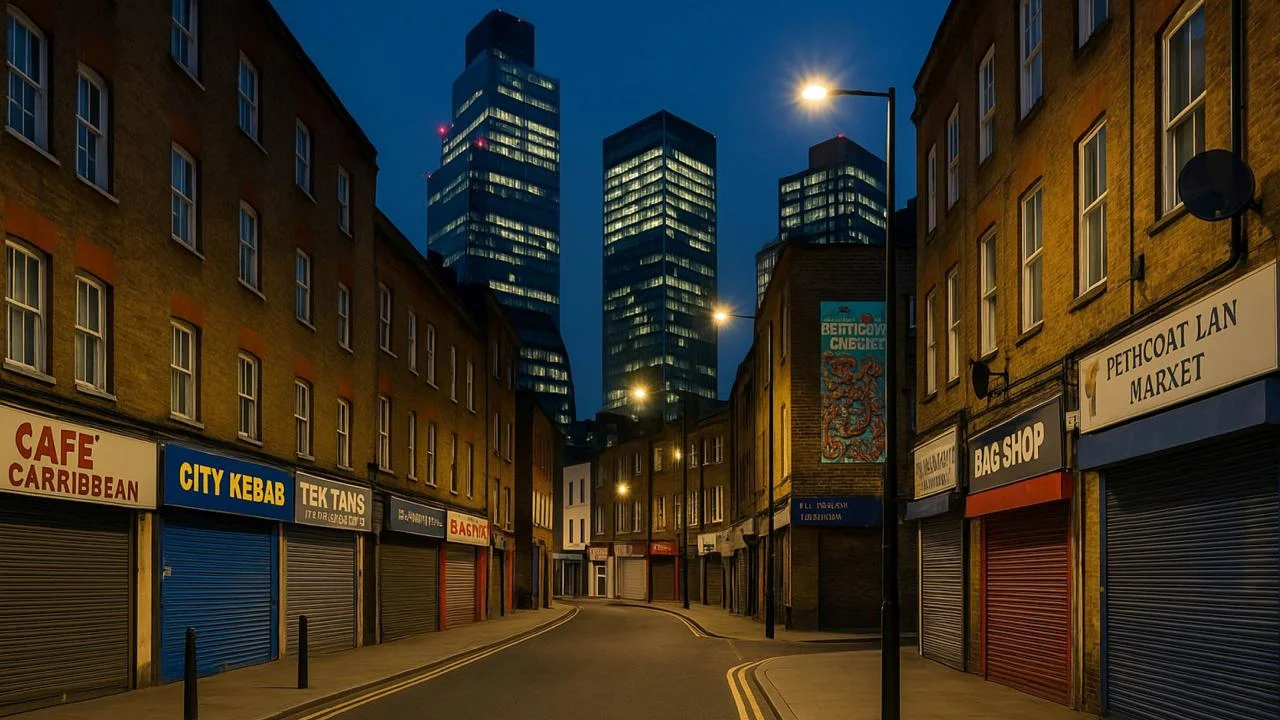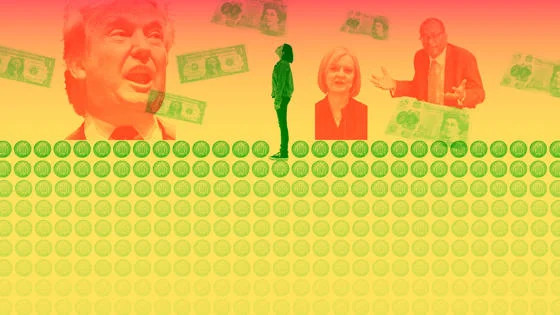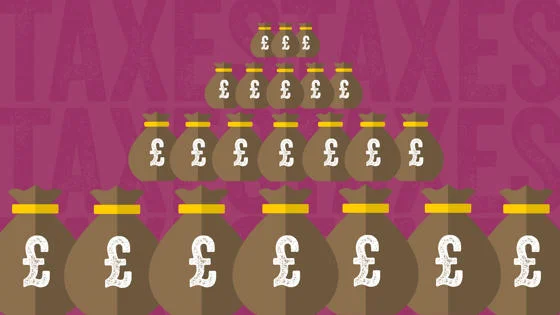Why we need to talk about wealth if we want to address poverty

Contents
The problem of poverty is seemingly intractable. According to the latest numbers from the Joseph Rowntree Foundation, 14.5 million people in the UK were living in poverty in 2021/22 – that’s an astonishing one in five people.
This is despite large investments of money and effort to understand and end poverty. Since 2006, the government research funding body, UKRI, has spent more than £752 million on projects related to poverty. And over 5,700 charities in England and Wales focus on the prevention or relief of UK-based poverty, with a combined annual expenditure of over £8.1 billion and the dedicated work of thousands of people.
A growing body of research since the early 2000s has been making the case that we need to shift our gaze upwards towards wealth and the wealthy if we want to address poverty. This is the premise of Wealth, Poverty and Enduring Inequality: let's talk wealtherty, a new book by Dr Sarah Kerr, Research Fellow in the International Inequalities Institute at LSE.
Extreme wealth and the extremely wealthy play an increasingly significant role in making things worse for people at the bottom.
Focus on wealth not poverty
In her book, Dr Kerr introduces the concept of “wealtherty”, a term that aims to shift the focus from poverty to wealth.
“We typically measure ‘poverty’ in relation to income – those living on below 60 per cent of the median wage. But we understand it in a much more diffuse way – as encompassing a broad set of experiences, such as living in poor quality or insecure housing, and social effects, such as marginalisation and stigma,” explains Dr Kerr. “There isn’t an equivalent word to describe the distribution and the social effects of extreme wealth.
“I came up with a parallel term, ‘wealtherty’, in an attempt to put wealth more firmly at the heart of conversations about poverty and inequality, and to make a stronger case that we need to think beyond distribution statistics when we think about wealth, and towards the harms that extreme wealth causes.
“This isn’t to say that we should ignore the immediate material needs of people living in poverty. Of course not,” she says. “My frustration has been that sometimes ‘looking down’ has taken the focus away from the structural causes of poverty, amongst which the hyper-concentration of wealth is increasingly consequential.
“We need to be ‘looking up’ more. Extreme wealth and the extremely wealthy play an increasingly significant role in making things worse for people at the bottom as we see wealth shifting from the public to the private domain.”
According to the World Inequality Report, over the last 50 years, governments around the world have seen a big drop in public wealth – the value of things owned by the state, like land, buildings, and infrastructure. In the UK and the US, this drop has been so severe that public assets are now worth less than public debt. That means the government owes more than it owns, leaving public wealth in the negative – about minus 30 per cent of national income.
“Even if the government was minded to tackle poverty, it has diminishing resources to act because so much wealth that used to be public wealth is now in private hands,” explains Dr Kerr.
Even if the government was minded to tackle poverty, it has diminishing resources to act because so much wealth that used to be public wealth is now in private hands.
The power of wealth
Dr Kerr explores how the problem of wealtherty is sustained and how “expert knowledge” has been captured by the economic elite.
“As we’ve seen in recent elections in the US and Germany, money can buy political influence, shaping our public and political spheres,” she says.
“And once that power is achieved, there is utility in building narratives that look down. Solutions to poverty have tended to focus on adjusting people’s behaviours, such as getting them to do more job searching, or have been concentrated on the issues of worklessness, addiction and broken families.”
In the early 2000s Iain Duncan Smith’s think tank, the Centre for Social Justice, did exactly this when it produced two flagship reports – Breakdown Britain and Breakthrough Britain. These translated into the Conservative Government’s Welfare Reform Act of 2012, which introduced Universal Credit and other reforms. It was designed to rationalise the welfare system and reduce costs, but it has been criticised for increasing financial hardship for vulnerable people.
“It’s been hugely damaging to lots of already struggling groups,” says Dr Kerr. “People with disabilities, single women with children – all the usual groups who are harmed by bad social policy were, and continue to be, harmed by that policy.
“When there is a dominant narrative that places the causes – such as bad choices by individuals – and solutions – meaning more work or job searching – in the grassroots or at the level of the individual, it can keep the focus downwards, and away from structural causes,” claims Dr Kerr. “Why would you need to levy a wealth tax, or force companies to comply with living wage regulations, if poverty is an effect of bad choices on the part of individuals, rather than wealth extraction and a low wage economy?”
Why would you need to levy a wealth tax, or force companies to comply with living wage regulations, if poverty is an effect of bad choices on the part of individuals?
How can we shift the focus from the poor to the wealthy?
“In some ways, things have begun to shift. When I started this research in 2015, the first wave of literature based on the Office for National Statistics' (ONS) Wealth and Asset Survey was only just coming out,” Dr Kerr explains. “The World Inequality Report was first published in 2018. This is all remarkably recent.
“Today we have groups like Patriotic Millionaires and The Good Ancestor Movement which are focused on addressing the problem of extreme wealth, and social change organisations, like the Joseph Rowntree Foundation, which now have a much stronger focus on deep social change, including coming to terms with wealth.
More work needs to be done to shift political opinion towards support for the redistribution of wealth. While public opinion consistently polls strongly in favour of redistribution and taxes on rich people, this is yet to be reflected in any of the main parties’ manifestos. A wealth tax won’t get any traction unless there is public and political support for it."
"I’m hopeful," concludes Dr Kerr. "It feels like we are at a critical moment. There is lots of great work being done by academics and others advocating for change not only to build workable tax solutions to extreme wealth, like Andy Summers and Arun Advani’s work in The Centre for the Analysis of Taxation (CenTax), but also to understand how to present the issue in a way that brings people on board and helps these solutions gain traction.
“The period leading up to the November 2025 budget is an opportunity to make the case that taxing those who have the most not only raises public revenue for services most of us, including the wealthy, rely on, but also speaks to a public desire for fairness. It could help to prepare the ground for real, meaningful change in society."
Dr Sarah Kerr was speaking to Sue Windebank, Senior Media Relations Manager at LSE.





